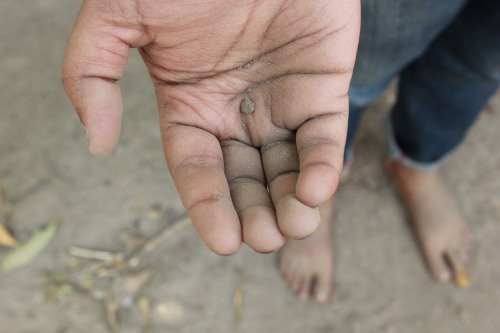The principal guardian of the poor against all forms of injustice is the public justice system – police, government officials and the judiciary working together to protect people from violence and oppression. A key component of an effective public justice system is well informed officials who are not afraid to enforce the law. This was illustrated by a case on September 5 in Telangana.
Several victims had been held in bonded labour in a charcoal making business. They were not paid what they had been promised and they recounted stories of physical and verbal abuse spanning two years. They explained how the owner refused any assistance after their meagre belongings were washed away by a flood a year earlier. Unable to survive at the site, the victims fled by night and returned to their home village some 300 kilometres distant… only to have the owner come repeatedly and physically force four of them to return to the work site.
The families contacted Association for Rural Development (ARD), who partnered with International Justice Mission (IJM) and local authorities to locate the missing victims. When they arrived at the owner’s home, one of the victims was found at that very location and told a story of abuse and threats to his life.
The owner, however, appeared untroubled by these revelations. In an apparent attempt to justify forced labour and abuse, he argued that the victims owed him money and even produced documents showing the advances he had paid to the victims. These amounted to between Rs. 10,000 and Rs. 20,000, for which entire families, including children, been compelled to work for two years.
Fortunately the police and other officials in the district were knowledgeable about the law and were not taken in by these arguments. Chapter VI, session 17 of The Bonded Labour System (Abolition) Act (BLSA), 1976 states that “Whoever advances, after the commencement of this Act, any bonded debt shall be punishable with imprisonment for a term which may extend to three years…” Rather than absolving himself of wrongdoing, the accused was heaping up evidence of his crime.
The District Collector conducted a prompt and informed inquiry and issued official release certificates to nine victims, including two boys, aged six and ten, who were found to be victims of bonded labour. The survivors who had been abducted have been located and returned to their home village where they will receive help in rebuilding their lives.
Uniformed or apathetic officials might have been persuaded by a smokescreen of documents. But because this was not the case in this Telangana district, charges have been filed against the accused and the public justice system has the opportunity to stand as an effective guardian for the poor and vulnerable who need it most.
As civil society and government work together, we can make this kind of informed governance the norm in every district across India. When that day comes, those who would build a business on the exploitation of the poor will find themselves out of a job.










